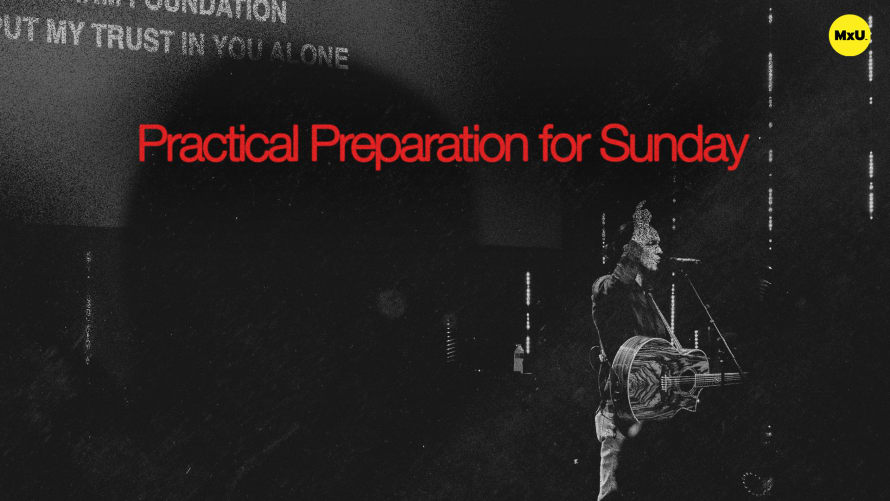

Whether you’re a worship leader, music director, or a part of the production team, this course is for you. Spiritual and practical readiness are key to a successful service. From different planning techniques to communication methods, learn how to streamline your preparation.
Spiritual Preparation
Starting with a prayerful thought is crucial for team preparation. Starting with prayer and seeking God’s guidance creates connections for your congregation to relate to. God should be a part of the planning and the execution for spiritual readiness even through the pressures and distractions of each week.
Scheduling and Time Management
Time for prayer and reflection should not be overlooked. They should remain a top priority. Avoid urgent tasks overshadowing spiritual preparation. Practically speaking, song choices and set lists should be communicated early in the week. Resources like chord charts and reference tracks should be given to each member of the team to ensure everyone is well-prepared.
Effective Communication
Clear communication is key to a successful worship service. All team members should know their roles and parts before rehearsal. Building supportive relationships within the team is crucial. Offer resources and guidance to help team members feel ready and confident.
Song Selection and Rotation
Maintaining a curated list of core songs is key for a well-prepared worship team. New team members will learn these songs as part of their onboarding process. Regular updates to the list by adding new songs and retiring old ones will keep the repertoire fresh. When a new song is introduced, do it early in the week and provide your teams with demos and reference tracks to ensure everyone is ready.
Rehearsal Efficiency
Avoid line checking during soundcheck and avoid rehearsing during the first service. Ensure all team members are prepared beforehand. Soundcheck is used purely to adjust sound while rehearsal refines the service. The goal is to keep all services consistent. The first service should match the quality of later ones, it shouldn’t be your last rehearsal.
Limited Time and Resources
Managing limited time and resources is a common challenge for many worship teams. Solve potential issues during the week. Provide clear instructions and resources to the team in advance. Make a detailed stage plot and share it with the team.
Creating a Calm Environment
Creating a calm environment is essential for a focused and effective worship service. Clarity is kind. Communicate well with the team to avoid confusion. Supporting volunteers means acknowledging their roles and it also means providing the resources and guidance they need. This support ensures they feel confident and equipped to perform their tasks.
Videos





